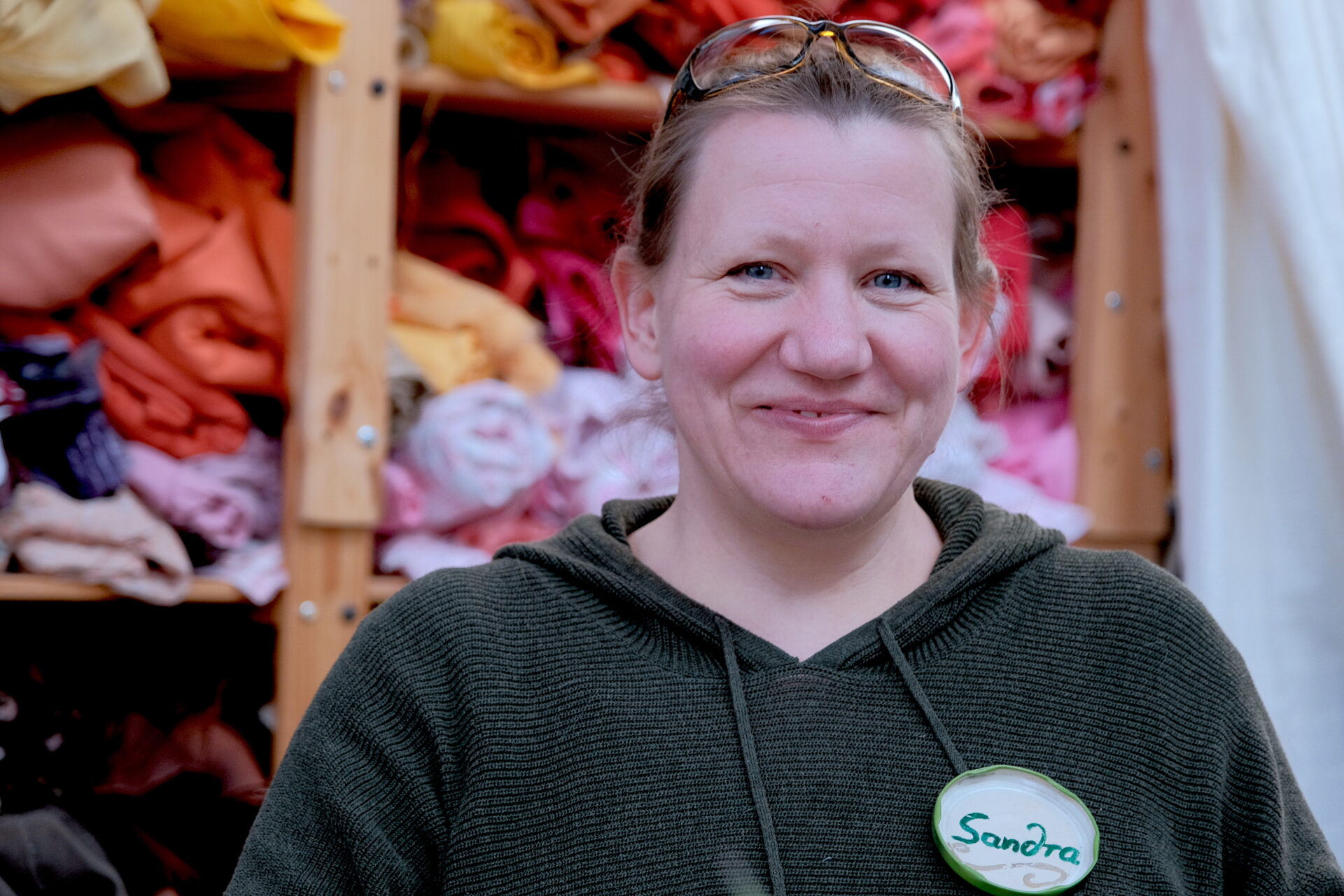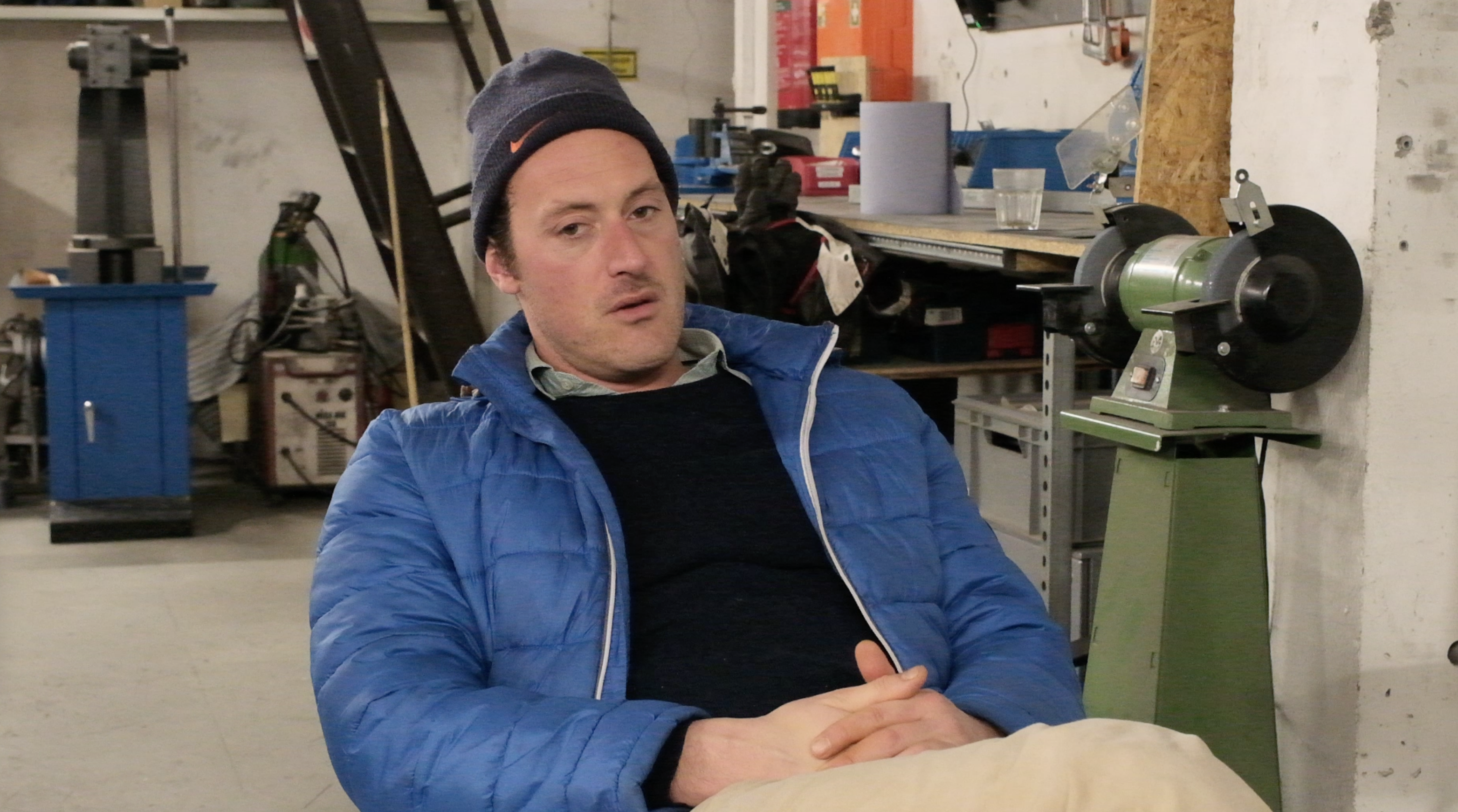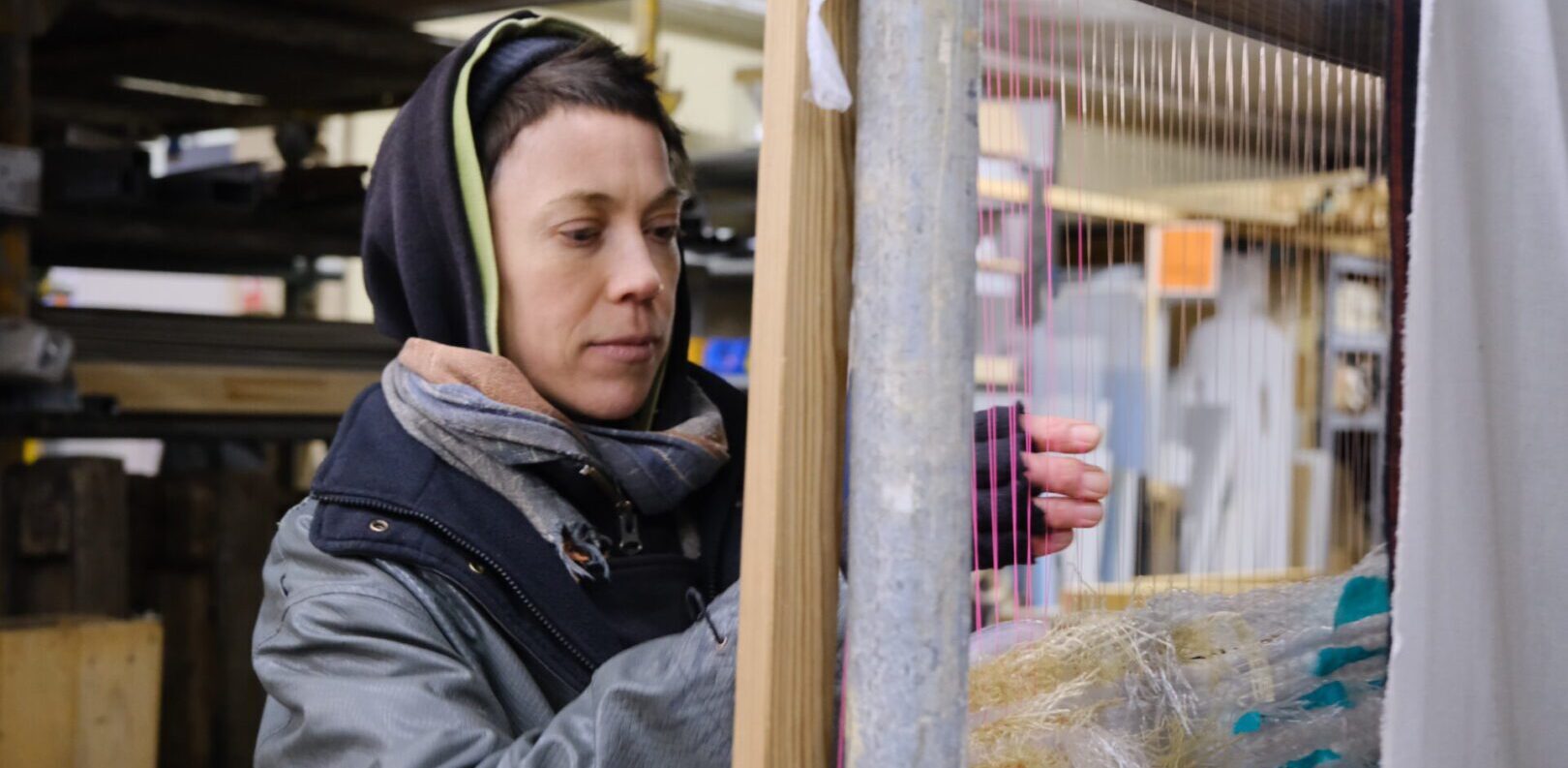In 2014, the European Union generated 2.5 billion tons of waste, 20% of which was household and industrial waste1. Although the quantity of household waste is tending to decrease, it is still significant and requires appropriate management to reduce the pressure on the environment. Incineration, recycling, composting, methanisation, energy recovery. The possibilities are many and varied, but are often presented as a pretext for continuing to produce and consume without addressing the underlying problem of waste production2.
The Circular Economy, a concept that questions the entire production and consumption chain with a view to more sustainable management of resources and needs, is based on seeing recycling as a last resort. A final solution that should not be at the heart of product life-cycle thinking, as it is often the case today.
Reducing, reusing and re-employing are actions to be prioritised. One of the main levers for making these actions a reflex is education. This was one of the proposals of the Citizens’ Climate Convention held in France in 20203. They set out the need for environmental education to change consumer behaviour: « We want to promote and teach eco-responsible behaviour from the earliest age and throughout life, by making education, training and awareness-raising the levers of action for responsible consumption and thus changing practices in our society. »
We met Sandra Lehmann in February 2023, project manager of Restlos. This project is run by the Mütterzentrum e.V. association in Leipzig. She shared with us her vision of education, possible teaching methods and the need to prevent waste rather than having to deal with it afterwards. This space, in which she welcomed us, is a real tool that public policies, schools, parents and businesses should take greater advantage of to educate present and future generations through action.
What is the Restlos project?
Restlos was born out of the Mütterzentrum e.V. Leipzig association, which already includes a family centre and kindergarten project. It was inspired by a similar project in Reggio, Italy. The idea came up in 2015 and we started looking for a location on Ebay Kleinanzeigen. It’s not easy to find a free space, big enough for such a project and well placed. That year we were lucky and found a landlord who liked the project. We’re located not far from a kindergarten, which means we’ll have an extra workspace for the children.
From then on, we started collecting materials, hence our logo, a skip filled with gold. ‘Rubbish’ is such an everyday material. If you look around you, there are so many things you throw away at home that are real treasures for others.
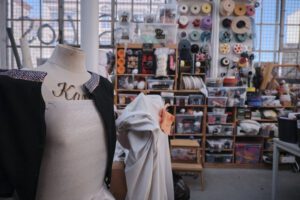
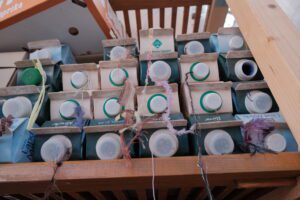
So we’re trying to get people to work with materials and give them ideas; to have a second look at these materials. And even if they can’t use them, give them to us and we can reuse them, so they stay in the loop and don’t end up in the bin.
Kids can swipe on a smartphone. Wow! But in reality, they can do so much more than that. That’s something they’re realising here with Restlos. They come out of the bigger workshops and you can see that they say to themselves « I can do things on my own and I’m capable of doing things, I’m capable of trying ».
In general, the mornings are reserved for groups, such as schools or kindergartens. We also welcome companies for their team days.
On Thursday afternoons we have open hours where anyone can come without an appointment to pick up materials, work here in the Restlos workshop or just have a good waking chat. It’s networking time.
I prefer to bring groups here instead of going to schools because, at Restlos, all the materials are accessible and the imagination is bigger. We have different types of drop-in time that we adapt to the classes. Some classes come regularly because they’re not far away; some classes come for special projects; others come from further away and stay for a whole day. Restlos works with about 30 schools.
I don’t think there’s any age limit to learn more about all these materials and our consumption patterns. The younger the children is, the easier it is for them to become passionate about the subject. In kindergarten, for example, they choose crazy things and create without limits. At school, it’s sometimes more difficult because by the time they’re teenagers, it’s as if they’re working with rubbish. Sometimes they come reluctantly, but then they see how the material is sorted and it’s clean and they sometimes open up. The older they get, the more barriers they have, the more they’ve heard at school that this is right and this is wrong, that it has to look like this and this is wrong. All these rules in their heads can be complicated.
For adults, it’s really the longest process. As I was saying, we also run workshops for companies. A lot of adults say to themselves: « I’m not creative, I don’t belong here ». And then sometimes they come with their child and they start looking around. Then they choose things and they start putting some things together… Everyone has this capacity to learn something about and in this place.
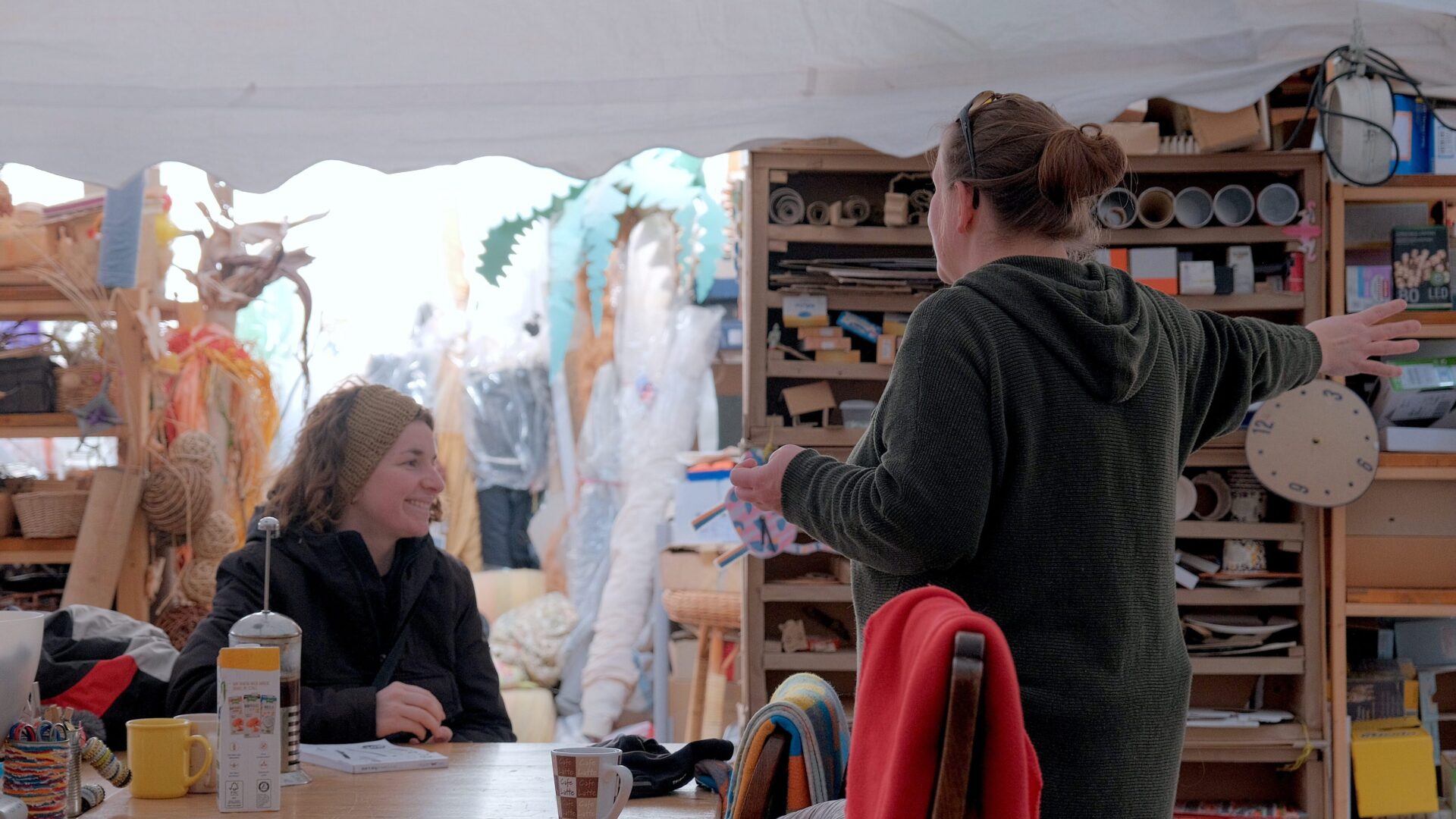
In a project like this, you have to get people involved, tell them to « Reduce first, think about what you buy and the packaging you buy. If you can reuse it, if you can replace it with something else, then limit what you have ».
It’s very important to convince people that it’s possible to reduce waste and work responsibly with materials. We also need to get people involved, educate them, but also force the government to talk to producers so that they are not allowed to produce this waste in one way or another, at the first place. So that we don’t have these new mixtures of plastic materials where you can’t afford to have waste because it’s very difficult, not to say impossible, to reuse.
On the one hand, producers need to produce eco-designed and recyclable products, but governments and laws also need to control it and be controlled. Then we need to explain to people why they need to be involved in this process and why they need to make a choice before they buy, then before they throw away, and that they need to have some kind of trust in the system if it’s really trustworthy. That’s the other job we have to do.
How does Restlos collect and make available all these materials?
In the beginning, it was a lot of people from our association, a lot of parents who heard about the project who started collecting with me. But as the years have gone by, it’s become more and more important, with some companies also getting involved. There’s some office stuff, it comes from a company that wants to digitise more things. But for the really interesting stuff, for the production companies, it’s difficult in Germany because there are so many restrictions that they’re not allowed to give away the production that’s failing. They’re not allowed to give it to a third party or to other people, they have to throw it away and to destroy it. So it’s mostly done by people who are really interested in recovering these materials and of course we have shops or restaurants that collect things for us. For example you have wine bottle corks, beer bottle caps. We look in the streets sometimes and we find some really interesting things. I don’t know if you’ve seen it here, it’s not quite official, but people who want to donate things put them on their doorstep. Here, if you put something outside, people passing by can take it.
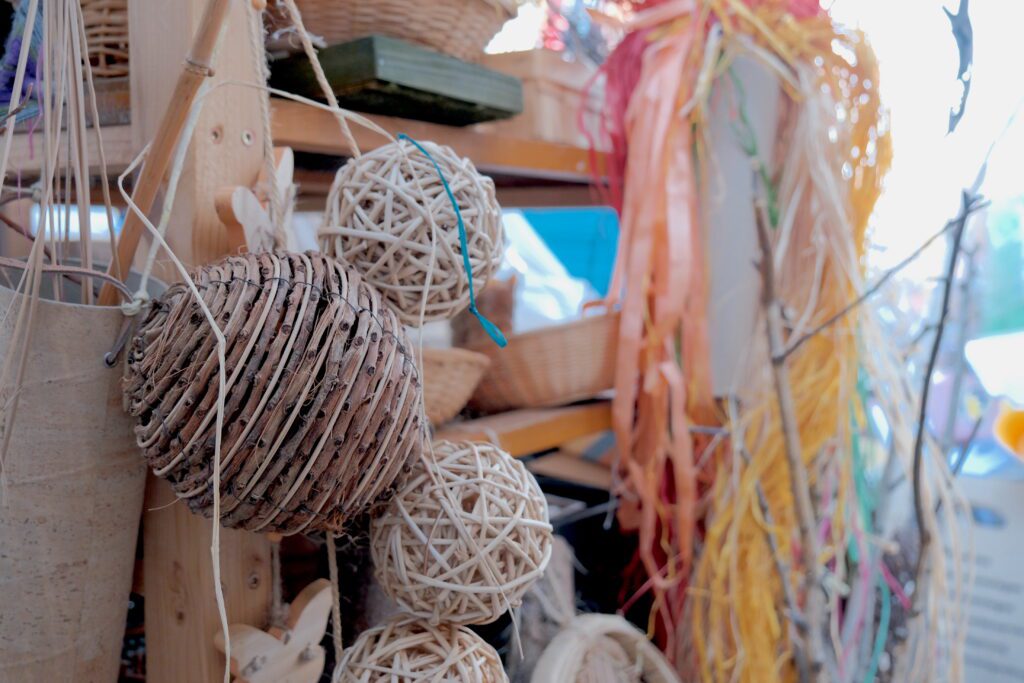
Usually, you have to bring it to a collection point but we’d like to offer the possibility of having other collection points like this to give objects a real second life. The project manager for the waste collection centre is working with our NGOs to try to ensure that people don’t throw everything away, and that if they have to, they do it in certain ways. We’re planning to perhaps have a big second-hand shopping centre somewhere in the centre of the city, like in Berlin, which already has one, and people put their rubbish there instead of in these collection areas.
In terms of providing access, there are the workshops I mentioned, which are financed by projects run by schools, companies, etc., and there are the opening hours for the general public. People who come to Restlos to pick up equipment pay what they think the equipment is worth. I like to play the game too and ask them to guess/say what they want to pay. I also tell them it’s too much sometimes, they usually say too much. I want them to think first about what the materials can become, then what the materials are worth and then they see this ‘waste’ as gold.
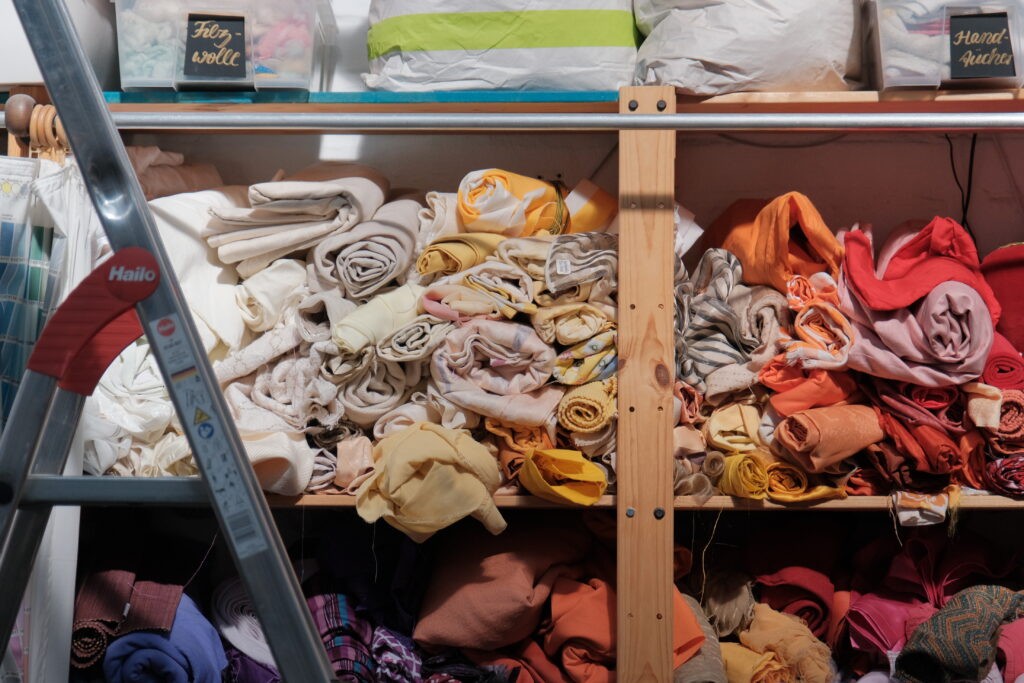
Why are you the ideal person to develop Restlos?
I love manual work, something I learned from my grandparents. It’s nothing new, it’s what my grandparents and a lot of other older people, especially here in the former GDR, had to do on a daily basis. They had to store everything because you never know when you’re going to get new things. We try to use things as long as possible so that we can repair them when necessary. So you have to be able to repair them yourself. My grandfather taught me how to repair bicycles or work with wood and my grandmother taught me how to work with a sewing machine, so the passion I had I can pass on directly to other children.
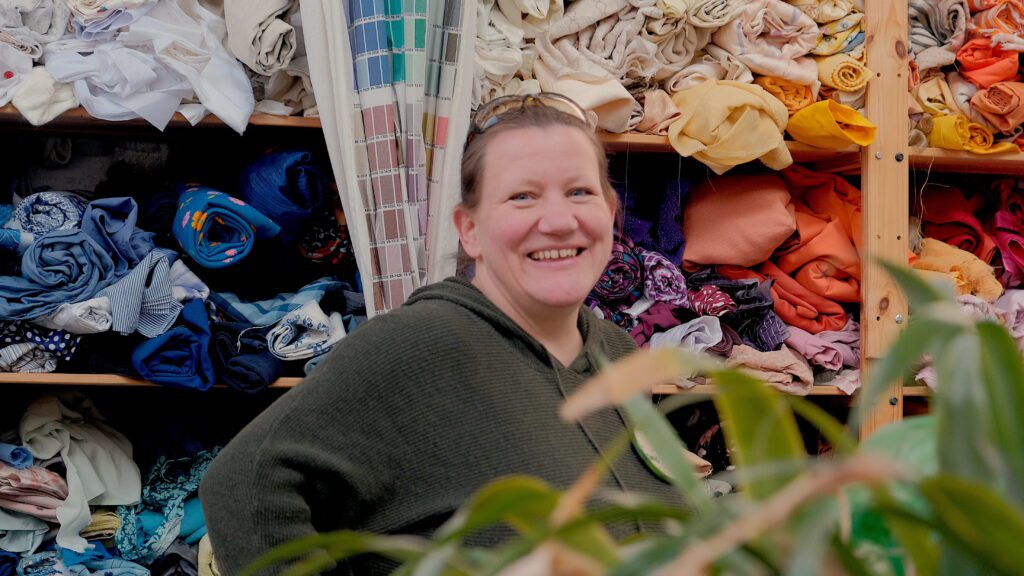
When I worked in science it was great, I’d like to be more of an environmental scientist. The problem is that sometimes you have a project, it’s interesting and you publish a scientific paper and it appears in the relevant scientific journal, which is fine, it’s important, but what are the direct effects? I didn’t see how I could contribute to the action in this way.
What educational process do you implement during your workshops at Restlos?
We’ve sometimes tried workshops using special techniques, such as making a yoga cushion. For us, it’s an open creative process. It’s not a typical educational process where you stand in front and teach. We let go and let people decide for themselves. You let the children decide for themselves. That’s the first thing they learn with Restlos: « I have my own opinion and it’s normal that I have my own opinion ». Because in schools, they have to sit there, they have to remain seated and silent and they have to listen to what the person in front of them has to say. Restlos allows them to develop their own thinking and that’s something nice to see. Then they open up to the material and they can share with us. We try to have two or three people in a group so that we can have more relevant discussions. You can ask them if they’ve ever tried anything like this before, if they’ve ever worked with this material before.
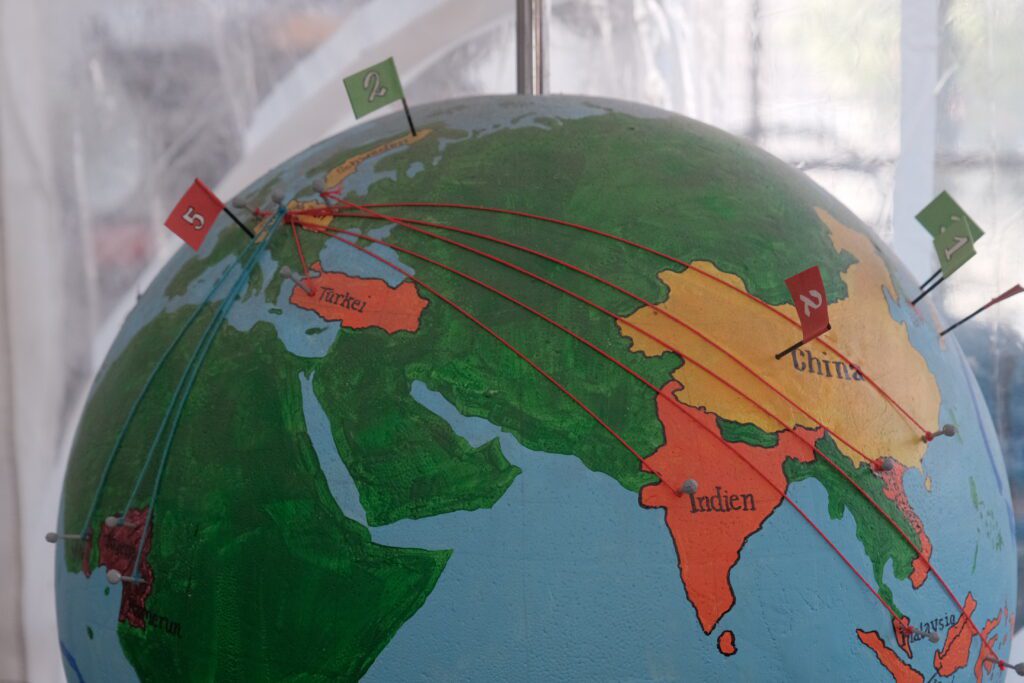
Sometimes we have presentations for older children or adults where we might present something about the plastic problem or the recycling programme or textile production and the fast-fashion industry.
During one of these exchanges we got some feedback. They told us that they were sad that so much food is thrown away at lunchtime in schools because they can’t really choose what’s on offer. The parents decide or the school decides what’s for lunch and the children can’t decide. And they said « Please let us decide for ourselves and we won’t throw away so much food ». Or « Please put more recycling bins or sorting bins in the town ». Because in the city you have the same thing as you have now in France, maybe you have only one type of bin and then maybe it’s sorted afterwards. The child said: « Why do we have these sorting bins at home and we can’t find them in the school playground or in the city? ». There are so many great ideas that come out when you take the time to listen to children of all ages. And I’d say it’s also an educational process for us in the end.
We have a new project in the city, actually in Saxony. It’s called the Friday School Concept. It comes from Fridays for Future. The children are involved in the whole process: the ideas and planning, then the management and post-project, as well as the presentation of the ideas. That way, you can really see whether you’re capable of achieving the objectives you’ve set. The result is fantastic, you can really see when you talk to the young people involved that they were speaking so responsibly, that they were adults in some of their projects, it was incredible.
Opening up to their own ideas and their own problems, listening and growing together is so much better than standing in front and telling someone what’s right. It’s so good and that’s what we’re experiencing with Restlos.
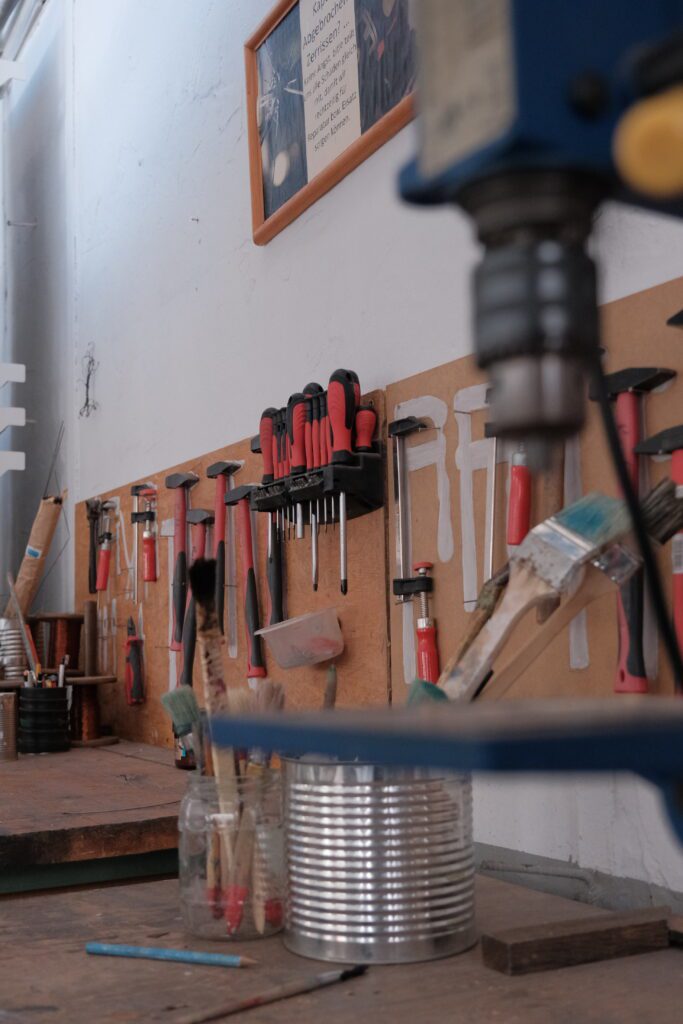
I don’t understand why the education system isn’t like that. I mean, in mainstream schools, we have a school system that’s maybe 150 years old and we teach children the same way we used to.
What is your definition of sustainability?
For me, sustainability means protecting at least what we have. We’ll never get back what we had before, I suppose. But from what we have now, the raw materials, the energy sources, the land, the soil, what we need for the future, everything that has to, in one way or another, minimise climate change, we have to protect it in one way or another. But I think it’s a very complex issue. We also have to include all the social processes. It’s a difficult learning process for me because sometimes I think nature comes first and that people don’t care. But of course you have to take them into account, you also have to make people aware of the problem, mobilise and get the support of a community for the process and the objectives you want to achieve. And you need people, as many people as possible.
There’s a beautiful African proverb: « When lots of little people in lots of little places do lots of little good things, they can change the world ». And that’s something you have to take into account with sustainability. You have to convince people to cut down on this incredible over-consumption. It’s part of the German way of life, indeed of the whole of the ‘West’. You have to explain to people why it’s important, that things can’t go on as before and that we have to take steps in the right direction, but you also have to convince them that these steps aren’t hard or annoying, or even expensive. These steps can be unique and individual and funny and really creative and that’s what we’re teaching people here at Restlos.
We need respect for others, for nature, for life.
We need a movement that goes against all this advertising that pushes us to always want more, always bigger, always more expensive or, on the contrary, always cheaper.
We need education so that people really understand processes like these, so that they understand that our new smartphone comes from somewhere and that everything behind it (polluting exploitation of minerals, people, fossil fuels, biodiversity, etc.) is very important to consider.
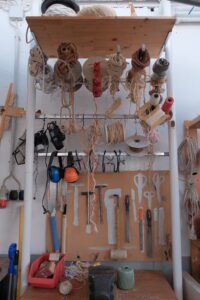
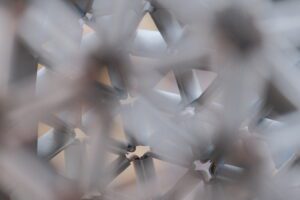
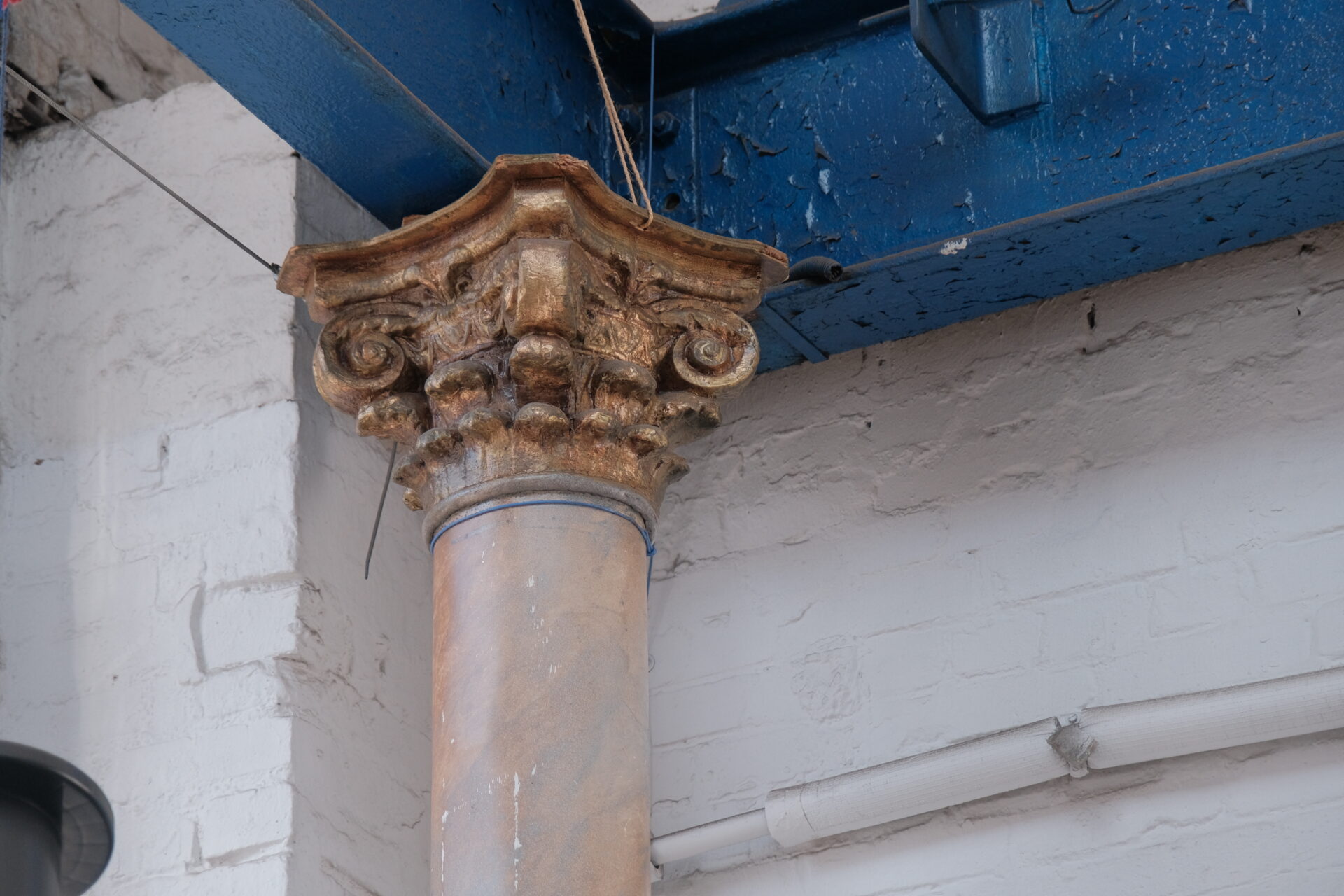
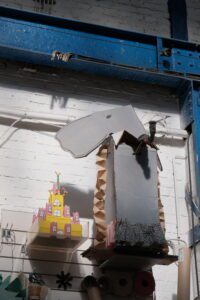
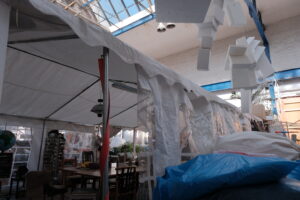
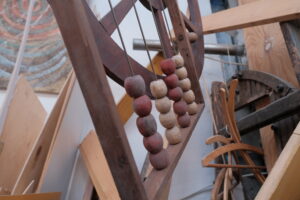
We may react in the mode, « I don’t want to hear it and I don’t want to see it because the other side is more glorious, more colourful, more exciting », but nevertheless we have to see it in order to act. And education is a big key! So education is an important process and I don’t know how it is that wonderful documentaries about the way things are are shown here sometimes late at night on TV programmes so that no child can see them. On social media platforms, such as YouTube, more and more good documentaries are starting to appear, but I’m not sure they’re very popular with children. On the other hand, on Instagram or TikTok, these influencers are always promoting life-destroying industries like fast-fashion by making it look cooler and healthier than it is. It should be cool to resist all that. Not to want to buy all the time, especially when these products are unethical. So we really need public knowledge of all the processes.
In our shops, when you buy cigarettes, you see these little pictures of diseased lungs or cancer, or whatever. Perhaps sometimes on other products we should show the chemical, natural or even human damage that lies behind that cheap T-Shirt sold for three euros at Primark, Zara or H&M…
This is a process that has already begun. In Europe, almost all large companies are obliged to have a sustainability officer. I don’t know if it works, but at least they have to take a step forward once they reach a certain size.
How do you define waste?
In my opinion, everything is cyclical, that’s my passion for ecology talking. I’ve learnt that in nature everything is cyclical and there’s no loss of energy anywhere, it’s just changes of form. There’s no waste, there’s just a bit of time, there’s a loss of time sometimes when we don’t act as we should, when we miss opportunities. But in terms of materials, everything can be used for something.
And your long-term vision for Restlos?
There should be a lot more places like this in every part of every city to recover material and put it into cycles so that it can be offered to people again.
It would be great if this worked as a kind of model project so that we could open more spaces like this all over the country.
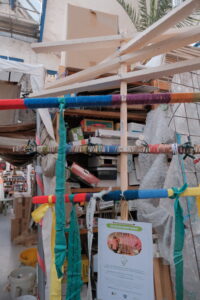
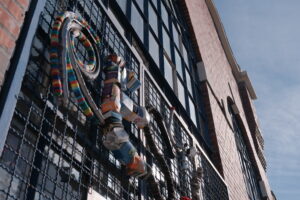
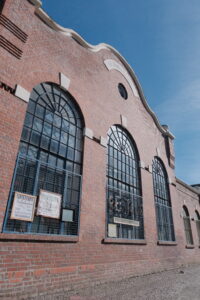
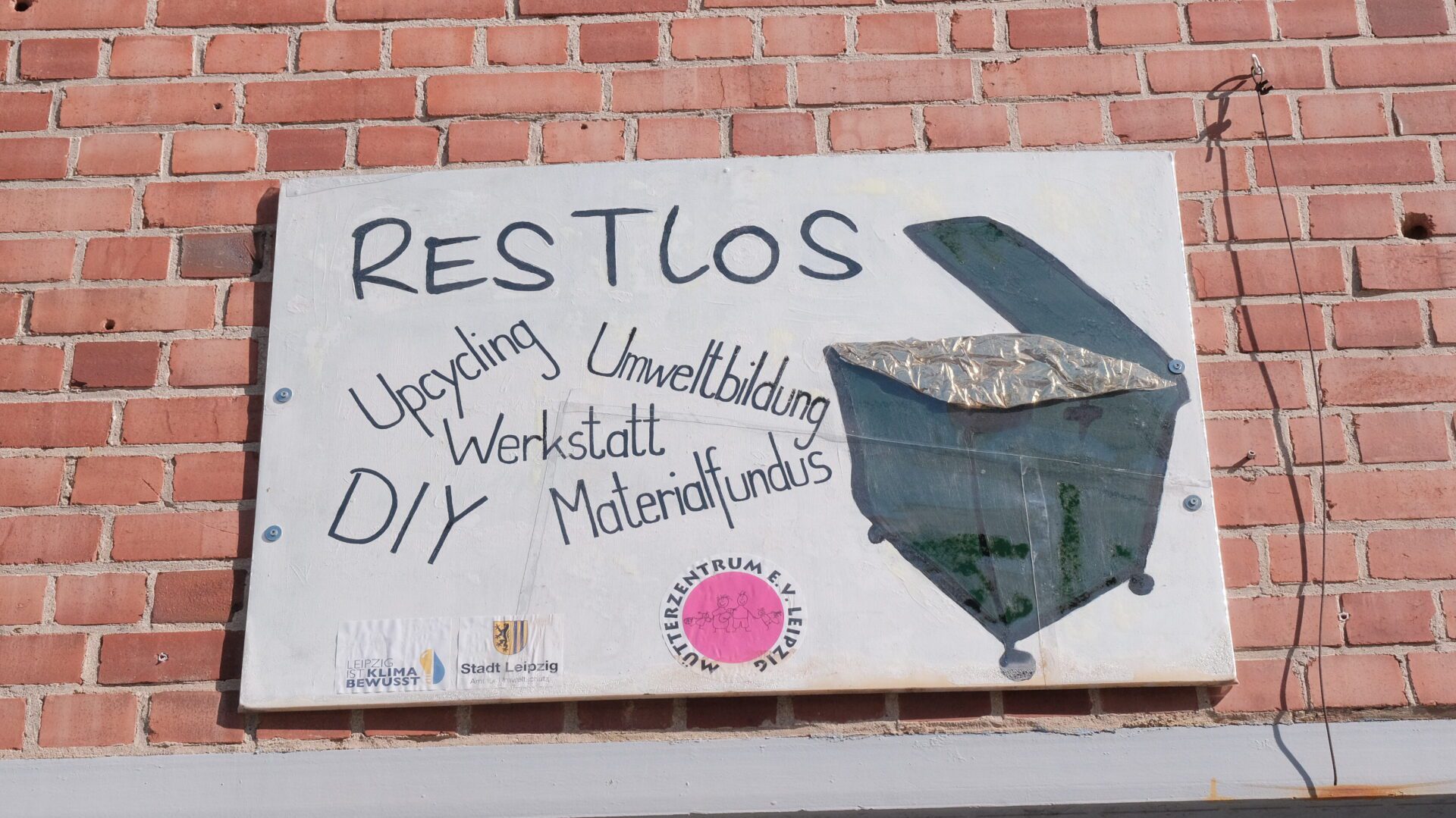
Our meeting with Sandra, her enthusiasm and her faith in a better world, and in a change in the way we look at our lifestyles and consumption patterns, made us travel and think. To be honest, it was one of the meetings that moved me the most, probably because it dealt with subjects that touch my sensibilities and speak to the committed young woman that I am.
There’s still a lot of work to be done, but the people involved are there, motivated, smiling and more convinced than ever that living more frugally, more sustainably and with greater equality can be done in a creative, fun and beautiful way!
A meeting rich in learning and hope. We hope you enjoyed reading it as much as we enjoyed making it.
We hope you enjoyed this article about our meeting with Sandra. Feel free to discuss it with us in the comments or on our social networks!
Find all our articles HERE
Sources
- Source: European Parliament[↩]
- see L’enfumage du recyclage, by Flore Berlingen[↩]
- Source: Convention Citoyenne pour le Climat[↩]

